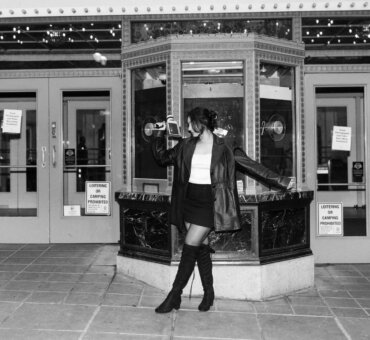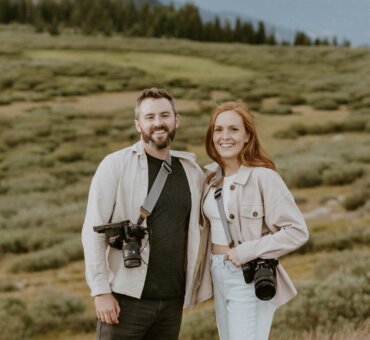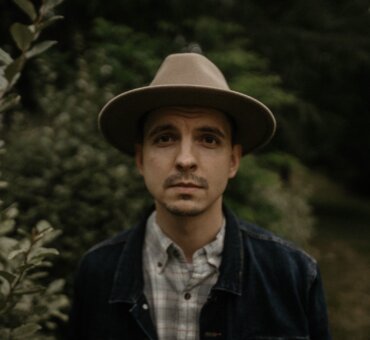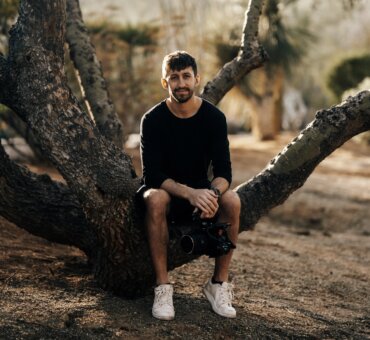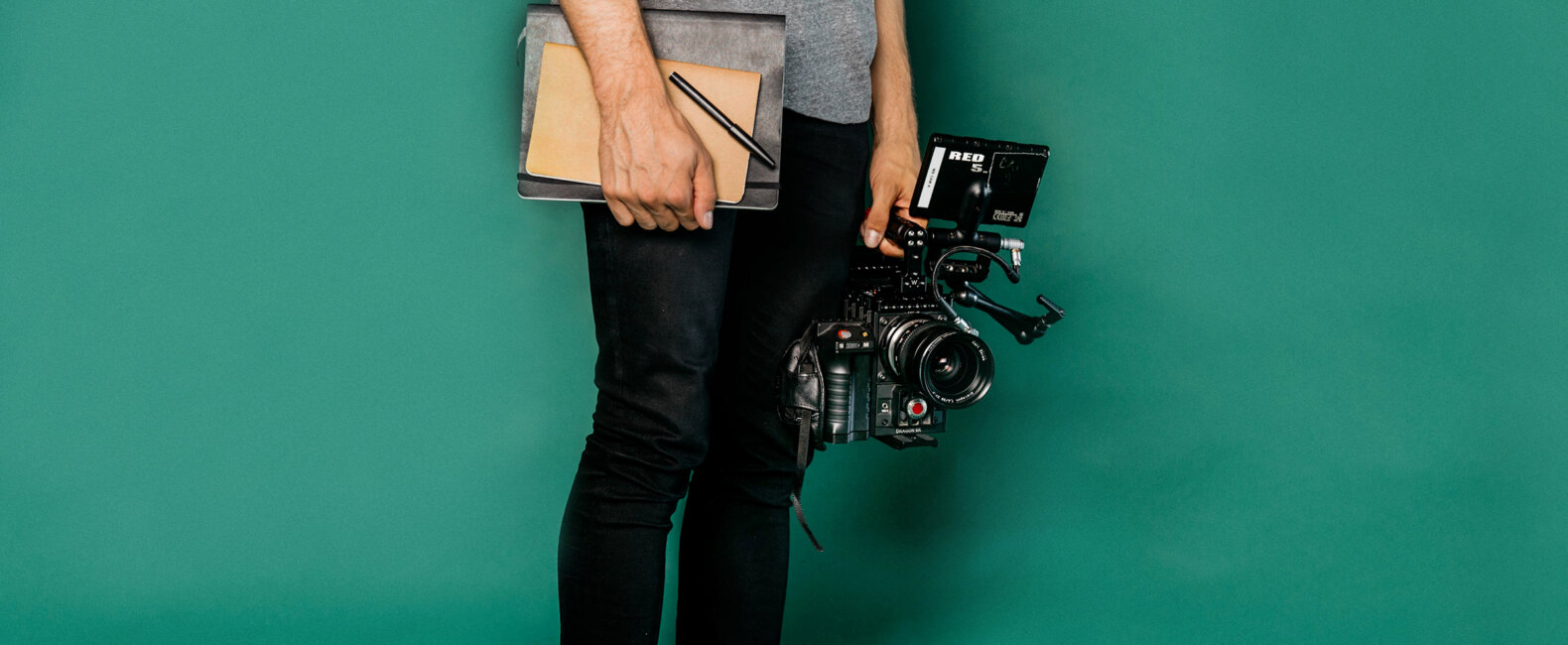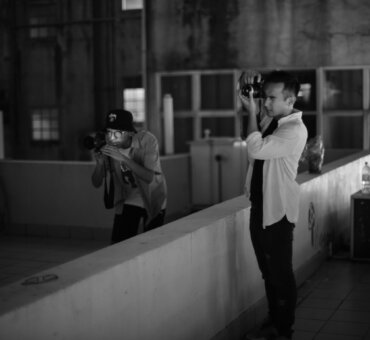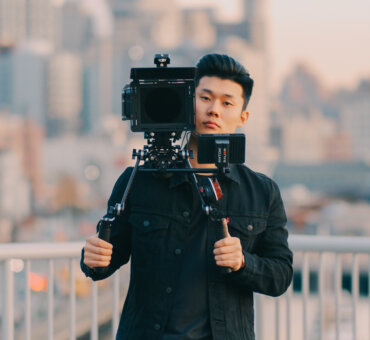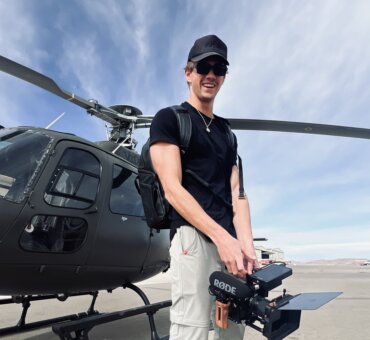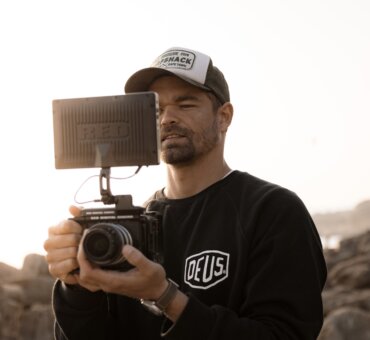If you want to get filmmakers worked up in a hurry, talk about film school. Opinions are as varied as they are impassioned. As they should be. Film school requires a lot from a person. It takes a lot of money, a lot of time, and, ultimately, a lot of trust. One way or another, your decision about film school shapes the type of filmmaker you’ll become. Like any creative discipline, there is no one-size-fits-all path to “success.” Heck, there’s not even a one-size-fits-all definition of success.
If you’re at a loss for what to do next, your role models can be a good place to start. The people we respect can often be a compass towards the people we will become. If you need to take a step in a direction, use your mentor’s path as a guide to help figure out your own path along the way.
Below, we’ve compiled several filmmakers’ thoughts and stories about film school. They’re all over the map, which we think is best.

I needed to get out there in the world and fall flat on my face and live life and figure out what I wanted to say, as opposed to continuing in the classroom.
RYAN KOO, DIRECTOR
Musicbed: Did you go to film school?
I took some film classes in college… but I’ve always felt you get a very narrow perspective in film school classrooms. For me, personally, I needed to get out there in the world and fall flat on my face and live life and figure out what I wanted to say, as opposed to continuing in the classroom.
So, considering you never went to film school, what has your film school been?
My film school was watching films, reading books, being on website forums. One thing I loved was the director’s commentary on a DVD. Listening to directors like Steven Soderbergh talk about their process and their craft, the choices they made in putting together a film. It was so educational and inspiring to me. That’s another thing that didn’t exist when Scorsese and Spielberg and those guys were going to film school — there were no behind-the-scenes commentaries, no Netflix that lets you watch anything you want. You had to go to the theater at the film school and listen to a lecture afterward. Now, you can play a movie and listen to a director talk about his or her choices. That was always inspiring to me, and it’s probably the number one thing that I got into early on in my attempts to learn.
How did you end up in New York?
I got hired at MTV as a graphic designer, even though I had no training in graphic design. I took a $25 online Photoshop training course. I was literally doing that on the train to and from work every day. A year later I was a senior designer for MTV, sitting next to people who went to Rhode Island School of Design, Savannah College of Art and Design, Yale. And I’m like, These people spent $200,000, and I spent $25. The Internet has disrupted everything, especially education. My idea with starting No Film School was to move a lot of that film school knowledge online. Read the original article.
KATELIN ARIZMENDI, DP
Film school was super beneficial for me because that’s where I learned to shoot on film. When you learn on film, you have to be much more careful and specific about everything. The most important thing you can learn, though, is lighting, and my school lacked that. Some schools, like AFI, have a strong emphasis on lighting, and it shows in their DPs. So for someone looking to go to film school, I highly recommend finding a program that emphasizes lighting. And I recommend finding a program where you shoot 35mm and 16mm.
MB: How come?
It’s important to know the basics. Know how to light carefully. Know how to compose carefully. Know how to use a light meter. Those are the founding tools of filmmaking. Sadly, it’s a dying thing. If you start on digital, then you don’t learn as much about highlights and shadows. Read the original article.
For me, that was the real education: being around people who saw and approached movies in a totally different way than I did.
DANNY MADDEN, ANIMATOR
Musicbed: Going to film school is a big decision. Did you know filmmaking would be your career at that point?
Not even. I’ve always been the type to take things as they come. So with film school I felt like, “Okay, this is a cool opportunity. I’m going to work hard at it.” But I tried not to think of it as a means to an end. I was excited to meet new people who were making films. But I wasn’t thinking, Once I do this, then I can do that. People enslave themselves to their own expectations. Their definition for success is this strange idea they formed before they even understood the situation. You can’t tell yourself at age 21 that if you haven’t made a feature by the time you’re 26, you’re done. You’re 21 years old. You don’t know what five years means. So when I went to film school, I tried not to set myself up for disappointment with arbitrary landmarks.
Was film school worth it for you?
The great thing about film school was being around people from all over the world who loved different things about cinema. For me, that was the real education: being around people who saw and approached movies in a totally different way than I did. I was constantly like, “Oh shit, I never thought of that before.” Peer learning is enlightening. So yeah, I’d say it was worthwhile. But at the same time, it is crazy expensive. I was lucky and got a lot of grants. But I do wish there were more socioeconomic classes involved in film school. That was one of the big limitations I saw.
Were there any specific lessons you took away from film school?
You know, you learn a thousand specific lessons every time you make something. But for me, a lot of what I learned at film school was what not to do. That might sound negative, but it was actually a very positive way to learn. To be on other people’s sets and see the way they treat their crew or direct their actors, you think, I never want to be that person. It shapes you.
You find yourself by the process of elimination.
Exactly.
PAUL PRYOR, DIRECTOR/DP
Musicbed: Did you go to film school?
I didn’t. After I finished my undergrad, I just wanted to get into a camera department and work on movies. That was the dream, you know? Become a director. Yada yada. I emailed this one alumnus from my school, and he invited me out to a movie set in Austin. I think the movie was called How to Eat Fried Worms. So I went out and introduced myself to the camera guy, and I told him I wanted to be around cameras. He basically threw me in with the rest of the guys. It was this awesome crew, and I started to work my way up from there. I became a union camera assistant. I worked for several years as a film loader. I learned more in a week while working on 35 millimeter than I did during four years of college. Read the original article.
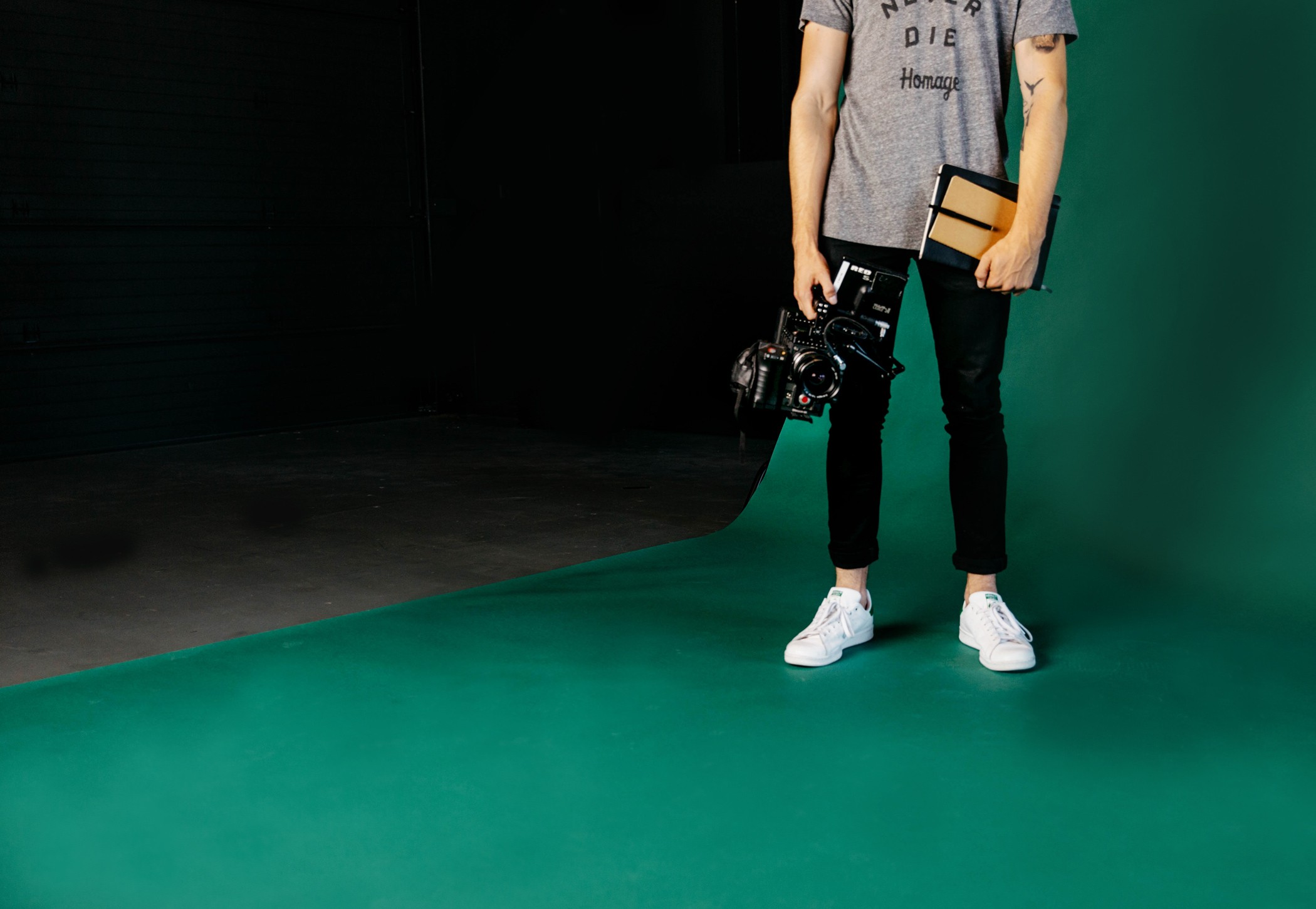
WE ARE THE RHOADS, DIRECTORS
Sarah Rhoads: Our art school was the school of hard knocks and learning as you go. [Laughs]
Chris Rhoads: I think not having a formal education has been an advantage. It made us hustle. There was a lot of trial and error. We just tried to break things down and reassemble them in a way that made sense to us. Through that process we started to learn. We joke that it’s like pushing a boulder. You have to get a little momentum and continue to push and push and push. SR: So much of it is about self-motivation. That’s what I tell our interns who are in art or photography school. The biggest thing about doing this type of work is knowing that it is 100 percent self-motivated. As a freelancer, you have to make your own reality. What do you want to be shooting? Get out there and try it. If there’s a technique you want to learn, you have to force yourself to go learn it even though nobody is paying you to learn it. Read the original article.
AUTUMN DURALD, DP
One thing I saw a lot at film school — and I also did this myself — was people being too particular about things, focusing too much on making things look pretty and not enough on telling a story. Your work has to come from inside you. You have to have a unique perspective. What makes for amazing cinematography is when both you and the director bring your unique perspectives and then you work together. Sometimes these young guys, especially with their digital cameras, try too hard to make things look perfect, and they never think about the story. Everything is starting to look the same. You have to put yourself into the work; you have to have confidence and not be insecure. The same is true for directors. The best directors are the ones who put everything out there, and you feel it when you watch their work. My advice is to try anything and don’t be afraid to make mistakes — that’s how you learn what you like and don’t like. Read the original article.
CALE GLENDENING, DIRECTOR
So you ended up going to film school?
Well, I quickly realized these film schools were more interested in academic merit than creativity or potential. I’d never challenged myself in school, never did a day of homework in my life. I was truly discouraged when I realized most of these elite film schools wanted kids who’d been in AP classes since their freshman year and scored 30s on their ACTs. I was like, “Being a genius doesn’t make someone creative.” But in sports, coaches pound into you that you need to get better every day. That’s what was written on the wall of our locker room: How did you get better today? I’ve taken that motivation and adopted it into my process of filmmaking. So I was discouraged, but I wasn’t going to let these schools keep me from doing what I loved. I decided I was going to L.A. anyway. I packed up my mom’s car and drove from Oklahoma to Los Angeles. I was 18 years old, one week out of high school, and I threw myself into the mix. Read the original article.
CHAYSE IRVIN, DP
I went to film school but dropped every class that wasn’t related to cinematography. So that’s how I failed film school. But I kept moving forward anyway. I enrolled in a second year cinematography program and met this great cinematographer who took me under his wing. He gave me the freedom to experiment on my own, rather than follow a curriculum. His approach was basically, “Here’s the equipment. Go figure it out.”
And that worked for you?
It really did. I was so young when I left high school and went straight into film school. I didn’t know anything. Being able to figure things out on my own has prepared me for what I’m doing now. I’m able to draw on my own philosophy and aesthetics. I think I responded well to things being open-ended because that’s the way I’ve always operated. I’ve never been super focused on big-picture things. I’ve always looked at the tiny things. Like how this water tastes or what this lens is going to do. I’m never thinking about where I’ll be two years from now. I know so many people who try to sculpt their careers, but I’ve found it never goes the way we plan anyway. I try to focus on whatever the immediate thing in front of me is, and I work through that thing. Read the original article.
The film school debate can be a divisive one. But we can look to those who’ve gone before us to guide our decision and help make sense out of the whole process. If we can learn anything from these talented people, it’s that the decision is entirely up to you. So what decision have you made? Join the conversation! We’d love to hear your experiences and thoughts on film school — the pros, cons and everything in between.




































































